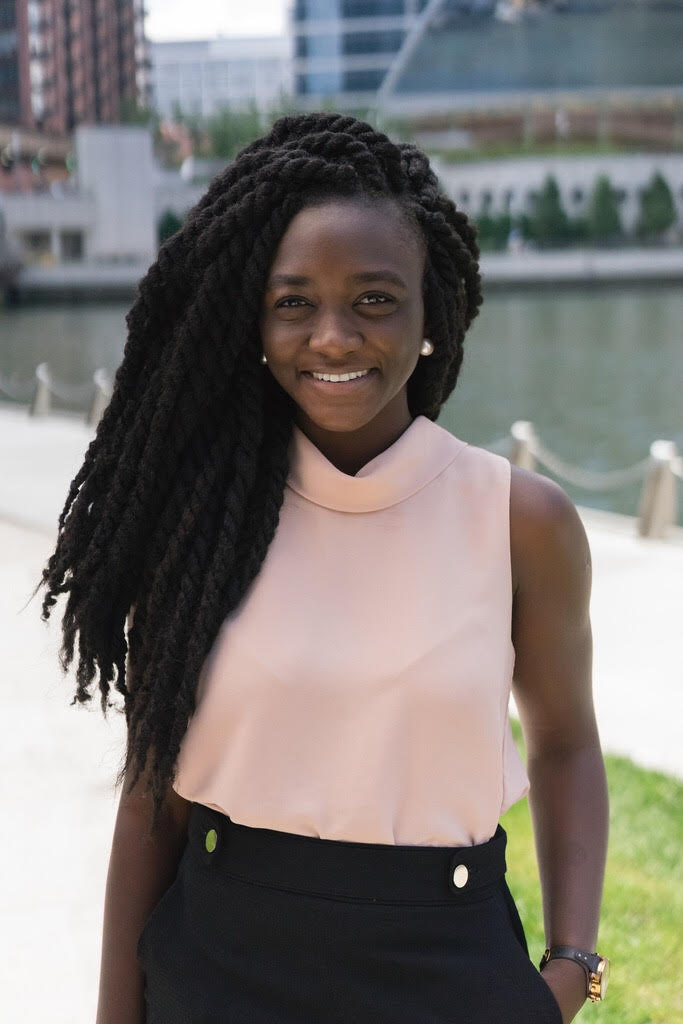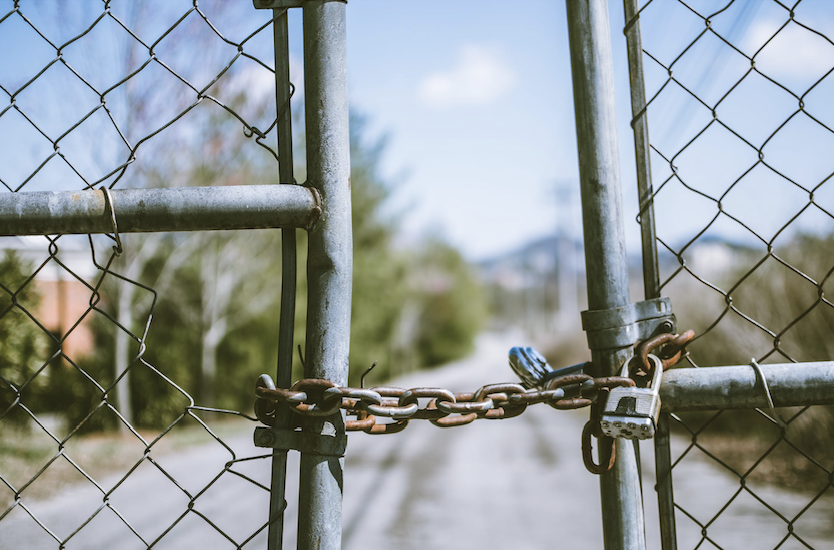Volunteer spotlight: Jessica Ladi Ibrahim Puri

Jessica is a Ph.D. candidate at Feinberg School of Medicine, Northwestern University, and an instructor for Field Studies in Public Health at Northwestern University. She received a Bachelor of Science in Biology from Loyola University and a Master of Public Health from DePaul University. Jessica’s research interests are in adverse childhood experiences (ACEs) and gender-based violence. She volunteers as a writer and researcher for Sahiyo, serves on the steering committee for the WE STOP FGM/C Chicago initiative, and volunteers with Chi Alpha Campus Ministries at Northwestern and Loyola Universities. She is married to her best friend, who now finds himself talking about (female genital cutting) FGC with strangers on airplanes. What was your experience of learning about FGC for the first time like? Difficult. I grew up in Northern Nigeria, where I knew child brides, escaped religious wars, and survived typhoid and malaria several times. So it was shocking to realize I had missed something so persistent in my country. I learned about it through an article I read in a college course at Loyola University in Chicago. I was initially upset because I thought it was just another Western publication writing about how terrible an African country was. Then I realized it was written by scholars from the state I grew up in. Further conversations with my parents, aunts, and uncles confirmed that I had friends who experienced FGC. They were just too ashamed to talk about it on the playground. I decided from that time to work to create a safe space for survivors to thrive and for those at risk to grow in safety. When and how did you first get involved with Sahiyo? I connected with Sahiyo earlier this year while sending several cold emails to anyone in anti-FGC work who could help with my dissertation. Several pointed me to Mariya and copied her email address in their responses. Poor Mariya was bombarded with emails introducing her to me. 🙂 It was inevitable. What does your work with Sahiyo involve? So far, I am doing some writing and helping with the Critical Intersections research project, which seeks to explore how systemic racism has negatively impacted both the global movement to end FGM/C and the support that FGM/C survivors have access to. How has your involvement with Sahiyo impacted your life? It has given me another avenue to exercise my thoughts on FGC and a space to talk about the subject without looking like a unicorn. What words of wisdom would you like to share with others who may be interested in supporting Sahiyo and the movement against FGC? Even if you know the world is ending tomorrow, plant a tree today. If no one lived to eat the fruit of your tree, at least the leaves gave a little oxygen to someone who needed to breathe.
Why are Indian ethics committees still hesitant to approve studies on FGM/C?

By Dr. Alifya In the past year, while making arduous efforts to obtain ethical approval for my research, I have come to understand the answer I was continuously receiving. “No.” My colleague and I, both doctors, sought out to survey Indian healthcare workers on their knowledge, attitudes, and practices about female genital mutilation or cutting (FGM/C). This simple cross-sectional study involved a questionnaire being sent out to Indian healthcare professionals via Google forms. It did not involve speaking to FGM/C survivors or providing any type of intervention; it simply served as a survey-based study to understand what Indian healthcare workers already knew or didn’t know about FGM/C. However, in trying to obtain ethical approval, we encountered unanticipated challenges. Being a healthcare worker and a survivor of FGM/C, I was searching for ways I could contribute to ending this practice. In our curriculum, there was not even a single mention of FGM/C. If a healthcare practitioner is unaware about the problem, how can they treat and assist? Healthcare professionals play a significant role in the prevention of FGM/C and can support and educate patients and communities about the advantages of ending the practice. Since very little research has been done in India on this topic thus far, I believed this would be a good starting point to pave the way for more research on FGM/C. Data from this research would also help create further awareness among healthcare workers. My colleague and I enthusiastically approached my father’s acquaintance, a gynecologist, with this idea. However, he attempted to dissuade us instead of guiding us. He claimed no one would discuss this subject; “Why not try something less contentious and simple?” Though discouraged, we weren’t prepared to give up. Next, we approached several committees in Mumbai for ethical clearance, including the ethics committee of our respective places of employment. However, no one responded. We eventually changed our jobs and approached these new institutes as well. Unfortunately, we got a similar response. “The topic is too sensitive. Try something simple.” Our research which started in Mumbai turned out to be extremely challenging. We met many people who loved the idea and were ready to guide us and be a participant in the research. However, they were not ready to publicly attach their or their institute’s name to it. After so many unsuccessful attempts, we decided to approach our parent institute, from where we graduated, in a small town in Maharashtra. Not many were aware of the practice. Despite this, we talked to our professors, and they were happy to assist us. The head of the ethics committee was eager to help us out as well, until she sat down and read our proposal. To our dismay, she echoed what we had been hearing for so long. “This topic is too sensitive. We cannot attach our institute’s name to it.” We have approached several committees over the past year and met with people who discouraged us, scared us, or pushed us into doing something else. But we are not giving up yet. We have emailed several independent committees all over India and are waiting for a response. Hopefully, someone will be able to help us. This journey has been challenging and difficult, but it has given us courage to keep finding new ways and not to give up. On our journey, we met a lot of new, encouraging, and supportive people. We are hopeful that some years down the line, the current situation will change. Becoming involved in this research and working to make changes has helped me emotionally deal with having had FGM/C. September 28, 2022 Update: I’m really happy to share the wonderful news that, finally, a Hyderabad-based independent committee has given its approval to our research. We found this independent committee through a business named Quinary Research Pvt Ltd. Though they had certain reservations, such as not including religion and naming Bohras as a practicing community, they were not as opposed to our research topic because we only included healthcare professionals and utilized a standardized World Health Organization (WHO) questionnaire. The fact that this independent committee lacked knowledge about the practice of FGM/C, and that it occured in India, is the major reason we believe they were willing to let us conduct the research; this lack of knowledge only goes to show how crucial conducting this study on healthcare providers’ knowledge on FGM/C is. We still have a lot of work ahead of us, but we have a start. Sahiyo has agreed to assist us with our project by providing funds and advice. We are grateful beyond words for Sahiyo’s unwavering support and encouragement in our work to end FGM/C.
